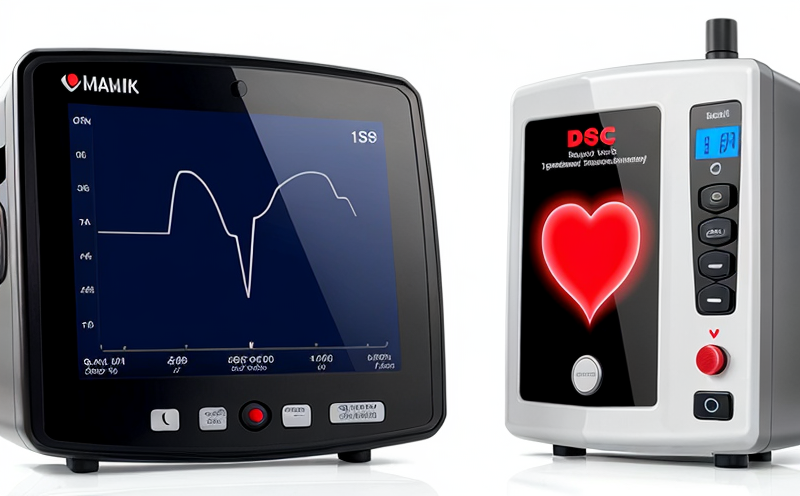ASTM F2077 Fatigue Testing of Spinal and Cardiovascular Implants
The ASTM F2077 standard is a critical tool in the development, validation, and certification of spinal and cardiovascular implants. This fatigue testing method ensures that devices are capable of withstanding the stresses encountered during normal use without failing or degrading performance over time.
Fatigue testing is essential for medical device manufacturers to ensure the safety and efficacy of their products before they reach patients. By simulating real-world conditions, ASTM F2077 helps identify potential weaknesses in design, material selection, or manufacturing processes that could lead to early failures or adverse events. This standard applies to a wide range of spinal and cardiovascular devices including orthopedic implants, stents, pacemakers, and other life-saving medical technologies.
The testing procedure involves subjecting the device specimen to repetitive loading cycles until failure occurs. The number of cycles can vary depending on the expected lifespan of the implant in vivo. For example, a spinal implant might be subjected to millions of load cycles over its anticipated lifetime, while cardiovascular devices like stents may experience fewer but more intense stress events.
To perform ASTM F2077 testing, highly specialized equipment is required. This includes precision loading machines capable of applying controlled loads at specific frequencies and amplitudes, along with sophisticated monitoring systems to track deformation and strain during each cycle. Specimen preparation plays a crucial role in this process; samples must be carefully cleaned, inspected for defects, and mounted securely before testing begins.
Once the test is complete, detailed reports are generated summarizing key performance metrics such as maximum load capacity, number of cycles until failure, and any observed changes in geometry or material properties. These results provide valuable insights into the durability and reliability of the tested device, enabling manufacturers to make informed decisions about design improvements or process optimizations.
Compliance with ASTM F2077 not only enhances product quality but also helps protect against recalls and lawsuits by demonstrating that rigorous testing has been conducted. Additionally, successful completion of these tests can contribute positively towards gaining regulatory approval from bodies like the FDA (Food and Drug Administration) in the United States or similar authorities worldwide.
Understanding the nuances of ASTM F2077 fatigue testing is crucial for those involved in medical device development, quality assurance, and regulatory compliance. Proper execution ensures that only safe, effective devices reach market, ultimately benefiting both healthcare providers who rely on these technologies daily and patients receiving treatment through them.
| Test Parameter | Description |
|---|---|
| Load Amplitude | The range of force applied to the specimen during each cycle. |
| Cycle Count | The total number of loading cycles performed on the sample. |
| Strain Rate | The rate at which strain is induced in the material under test. |
| Specimen Geometry | The dimensions and shape used for testing, which can vary based on device type. |
Customer Impact and Satisfaction
- Enhanced product safety through rigorous validation against industry standards.
- Prompt resolution of design flaws early in the development cycle, reducing risk and cost.
- Increased confidence among regulatory bodies regarding the quality of manufactured products.
- Improved reputation within the medical device community for adhering to best practices.
Our clients benefit significantly from our expertise in ASTM F2077 fatigue testing. By leveraging our advanced facilities and experienced team, we ensure that every test meets or exceeds the specified requirements outlined in the standard. This dedication translates directly into improved outcomes for our customers' products, leading to higher levels of customer satisfaction.
Environmental and Sustainability Contributions
Incorporating ASTM F2077 fatigue testing into your product development process contributes positively towards environmental sustainability. By identifying potential weaknesses early on, manufacturers can minimize waste associated with failed devices reaching the end user. Additionally, successful compliance demonstrates a commitment to reducing healthcare costs by preventing unnecessary treatments or procedures resulting from implant failures.
Our laboratory actively participates in various initiatives aimed at promoting sustainable practices within our industry. We are committed to continuous improvement and innovation in both our testing methods and environmental impact reduction strategies.
Use Cases and Application Examples
Fatigue testing according to ASTM F2077 is applicable across multiple types of spinal and cardiovascular implants. Here are some specific examples:
- Spinal Implants: Vertebroplasty needles, pedicle screws, intervertebral cages.
- Cardiovascular Devices: Coronary stents, aortic valves, pacemakers.
Each of these devices undergoes unique testing protocols tailored to their specific application. For instance, spinal implants may experience higher levels of cyclic loading due to the dynamic nature of human movement, whereas cardiovascular devices might be subjected to sudden, high-stress events during deployment or function.





